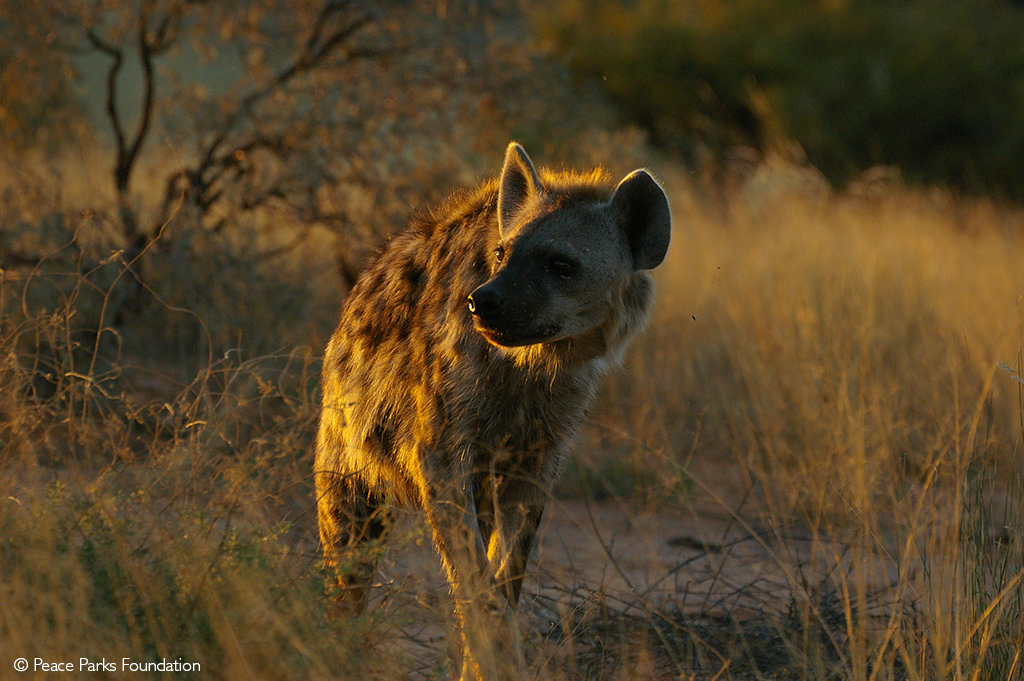
Apex predators have serious status. The lion lies in first place in the mighty hierarchy of Africa’s food chain – a fair call given their magnificence and top-down significance. But no species exists in isolation; survival hinges on the interplay between each species. Aspiring to this bigger picture, Maputo National Park in Mozambique (declared in 2021, joining Maputo Special Reserve and Ponta do Ouro Partial Marine Reserve) is topping up its scavenger quota, beginning this month with five spotted hyena incoming from Sabie Game Park. Not to oversell the underdogs, this represents another great if unsuspecting, rewilding win for southern Africa. Peace Parks Foundation shares this report.
“Without impalas and hyenas, the lion cannot be the king of the jungle.” – African proverb
For a time, wildlife suffered across Mozambique’s protected areas and, as a result, so did ‘functionality’ – how well the environment could work, by and for itself. Rebuilding this rhythm at scale is a highly sensitive, strategic process since every living thing has its place and dependencies within the system. This includes spotted hyena, previously eradicated in the park, but for a small leftover population. To fix this and restore the balance that comes with a vital scavenging role is precisely what Mozambique’s National Administration for Conservation Areas (ANAC) and Peace Parks have set out to do.
A new age and status for Maputo National Park
Maputo National Park was proclaimed in 2021 after merging Maputo Special Reserve, and Ponta do Ouro Marine Reserve. It forms an integral 1,700km² of the Lubombo Transfrontier Conservation and Resource Area. (To learn more about safaris in this special area, click here.) Remarkably, the park falls within the Maputaland-Pondoland-Albany Biodiversity Hotspot, one of 36 hotspots among Earth’s most biologically diverse and endangered ecoregions. This has been a powerful motivation in presenting it to the United Nations Educational, Scientific and Cultural Organisation (UNESCO) for assessment and approval as a World Heritage Site, an extension of the adjoining iSimangaliso Wetland Park in South Africa, which already carries World Heritage status.
ANAC, which directs the management of Mozambique’s National Parks and Reserves, and Peace Parks Foundation signed a 15-year agreement in 2018 to restore, develop and manage the park – taking joint responsibility for the health and wealth of its supernature in the wake of a civil war. Among this region’s remaining biodiversity bank were many species needing rehab – and not just the iconic ones.
The art of revival: go big with hyena to go wild
And so began an ambitious wildlife translocation programme to Maputo National Park. The aim is to bring back nature by reintroducing animals historically found in the area. Boosting the recovery of their populations is essential to developing the park as a tourist destination. Still, it is vital to restoring balance and abundance far and beyond the acclaim of re-building the Big Five and friends.
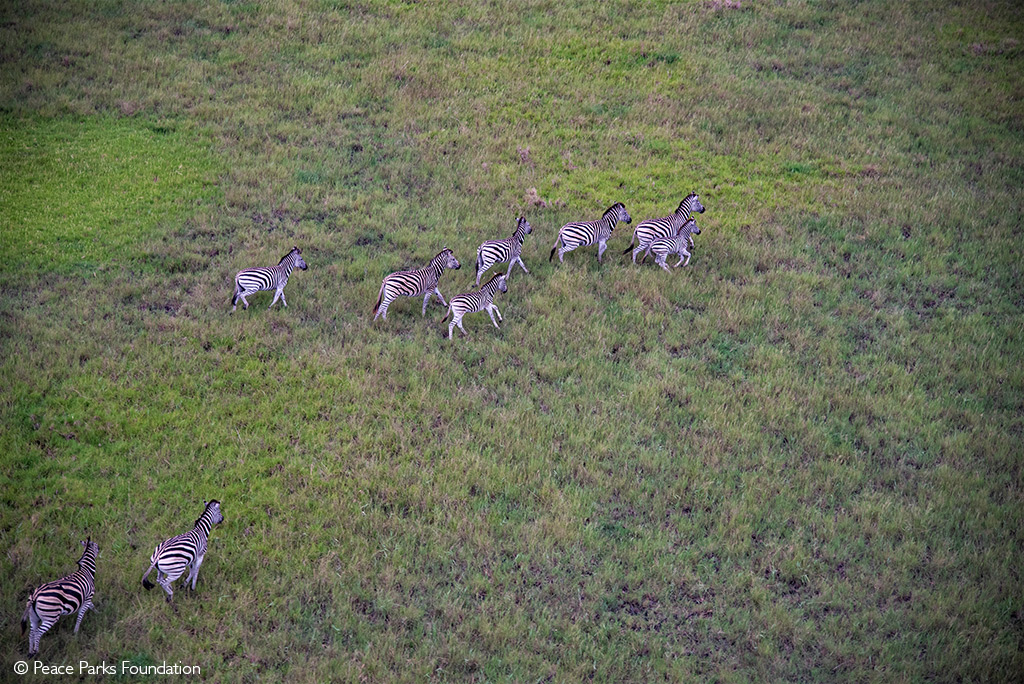

Rewilding began with kudu, impala, giraffe, buffalo, wildebeest, eland, zebra and other plains game species being trucked in. By 2022, 5,101 animals had been successfully translocated into the park from wildlife-plentiful parks and reserves, including 11 species that had become locally extinct. Many are now bouncing back naturally under the renewed protection of the park’s rangers, and thanks to natural animal ‘walkways’ restoring connectivity between historical ranges.
The park’s 2021 aerial census counted more than 12,000 animals, a marker of richness and progress but not necessarily completeness. And so the need has been recognised for the reintroduction of scavengers: the five hand-picked hyenas from Sabie Game Park, a protected area in western Mozambique which shares its borders with South Africa’s iconic Kruger National Park. Sabie can happily and healthily spare a small clan thanks to its wildlife revival.
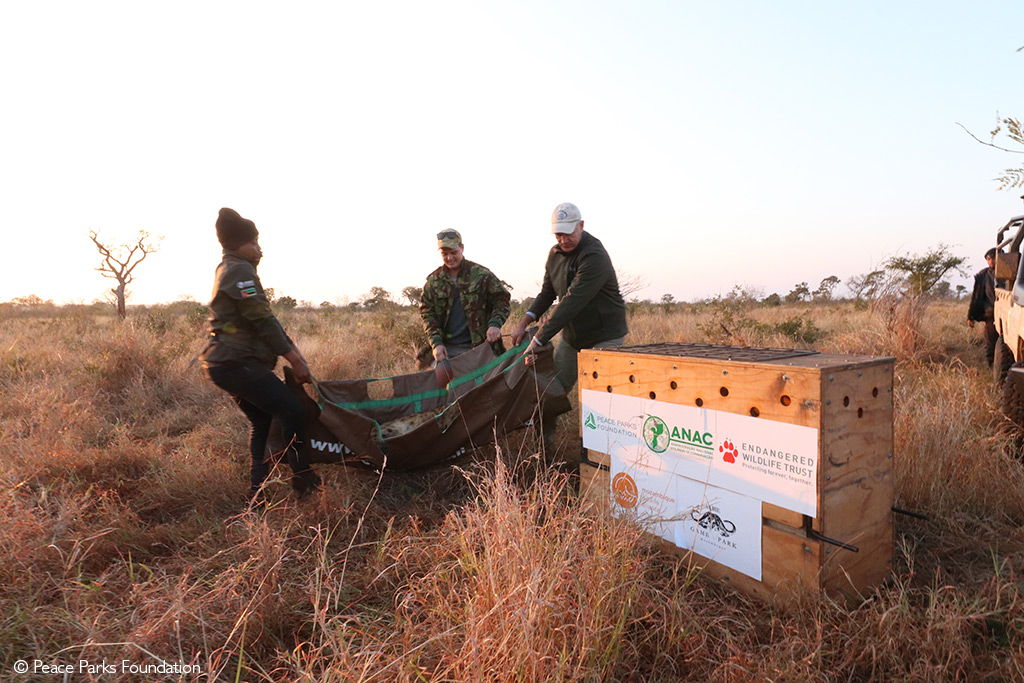
No rewilding operation is a basic case of shifting species X from A to B. An expertly coordinated and carefully executed plan is tailored to each translocation, often involving multiple teams and partners. The Mozambique Wildlife Alliance, an organisation key to the success of this move and many gone before, makes the vastly complex process of relocating animals safely and smoothly orchestrated. Its vets have seen many a species land successfully in their new homes and go on to flourish. With a quarter of Mozambique declared conservation space equipped with a visionary rewilding outlook and great motivation, their services will be valued here for many years.
When moving hyena, micro-management is required from the start, given the complex hierarchical clan structure. Family ties and hierarchy must be respected for the founder population to get along with each other and their neighbouring kin. The capture is equally complex; successful baiting in the dark depends on duping and doping the suspicious scavengers. Once caught, they are loaded onto vehicles and translocated directly to bomas in Maputo National Park. Resting and refuelling in these holding pens allows them time to build reserves and get new bearings until they’re declared good to go by the vigilant vets and the Maputo National Park conservation team.
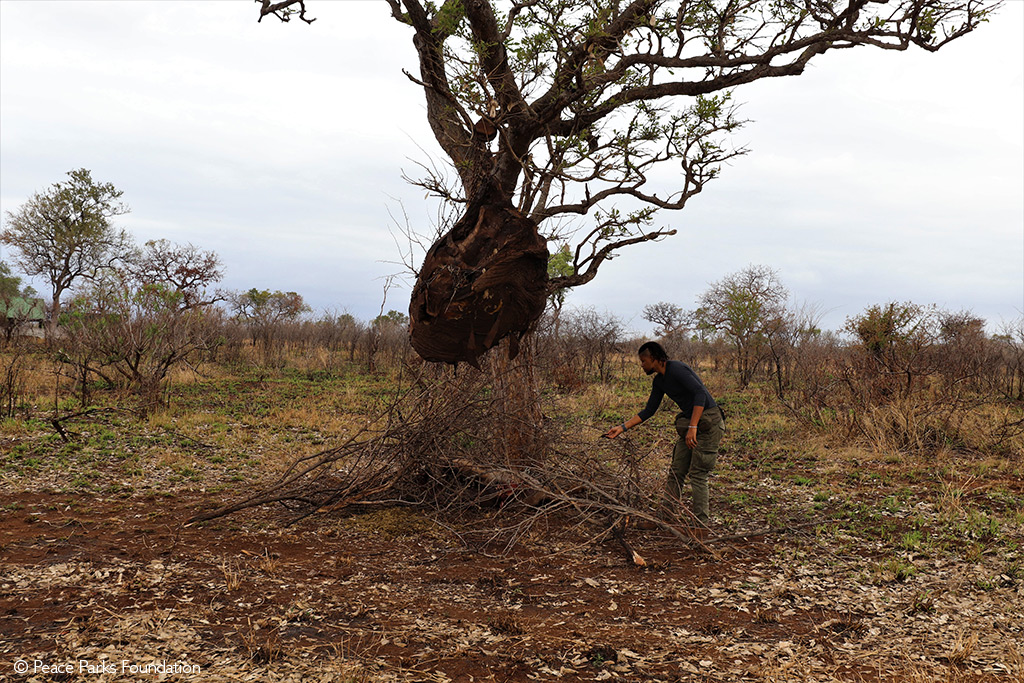

Bad-turned-good friends with benefits
With plains game thriving and a prey stockpile mounting nicely, it is now the predators’ time to shine in the park. The spotted scavengers are vital in paving the way for the much-anticipated big cats and helping things run smoothly and cleanly.
The new clan will act in a supporting predation role to the cheetah that is hoped to be introduced soon – and all eyes will be on them as they do. Some of them will have satellite collars fitted pre-release. This data feed, along with the park’s considerable camera trap network, will allow teams to monitor group composition and condition and to understand each individual’s patterns of movement and behaviour.
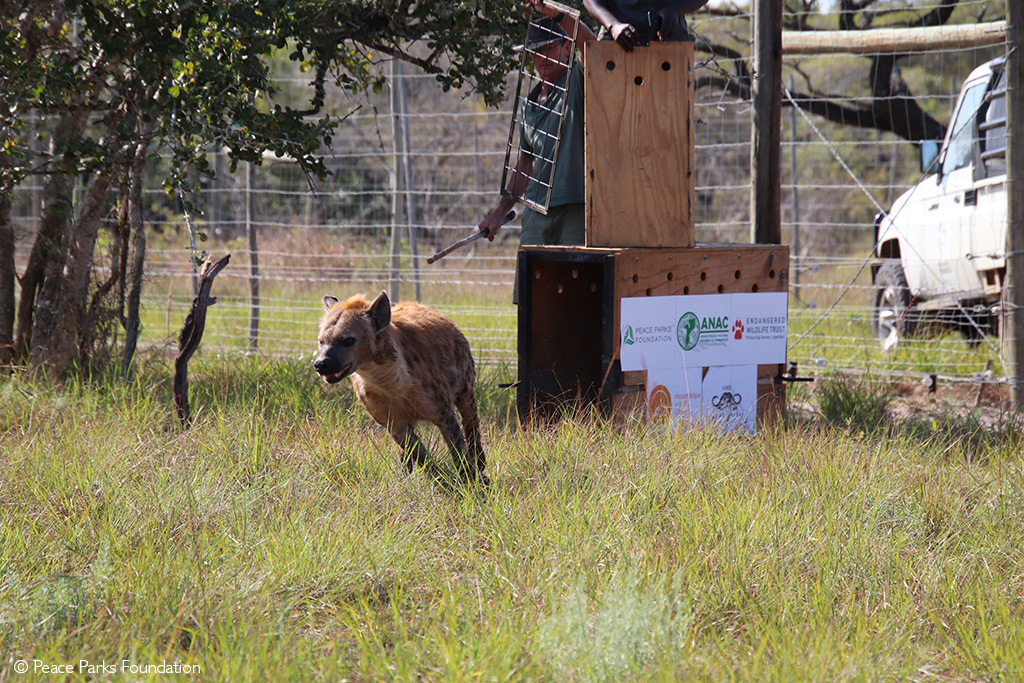
Their new home is full of hope and opportunity, which is long overdue for a species with a history of coexisting on the edge. It is also a new era richly deserved by a park where dedicated efforts to rewild, protect, connect and sustain already influence entire landscapes and communities within and beyond its bounds. It is a promising prospect for hyenas as they gradually re-establish and extend their range to benefit the entire transboundary tree of life.
Gaining this species which values kinship so highly for its survival, Maputo National Park can be proud to forge this ecological friends-with-benefits relationship between hyenas, humans and ecosystems. It is a testament to the will to revive great spaces and their many wild assets… and uplift the underdog.
“Declare kinship with the hyena, and all hyenas are your friend.” African Proverb.
To comment on this story: Login (or sign up) to our app here - it's a troll-free safe place 🙂.![]()








